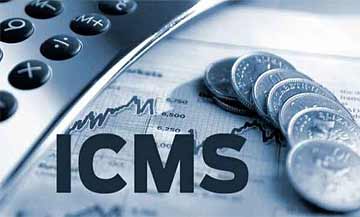 One of the most relevant issues faced by Nordic companies in Brazil, that have operations in international commerce (export and import), is the management of the high credit balances of the ICMS (VAT), either in the origin control or in the effective use of these values.
One of the most relevant issues faced by Nordic companies in Brazil, that have operations in international commerce (export and import), is the management of the high credit balances of the ICMS (VAT), either in the origin control or in the effective use of these values.
The “ICMS” is the tax levied on the distribution of goods and services of intercity and interstate transport and communications (equivalent to the VAT sales tax).
With the new wording introduced by Constitutional Amendment no. 33/2001, the article 155, paragraph 2, item IX, a, of the Brazilian Federal Constitution of 1988, established that the ICMS should be levied on the importation of goods, whatever your finality.
The ICMS is a tax that each one of the 26 Brazilian Member States and the Federal District may introduce, as determined by the Brazilian Federal Constitution.
The main characteristic of the ICMS is the subject of the non-cumulative taxes principle, whereas the taxpayers may offset the amount due in each commercial transaction with the amount previously charged.
In some hypothesis, this possibility of offsetting the ICMS previously charged ends up generating credit balance. This situation happens because in some cases (for example: sales with application of reduced ICMS rate, export, tax exemption, etc.) either the operation in the next commercial transaction doesn’t have collection of ICMS or the amount due is insufficient to offset the value previously charged.
The origin of these positive ICMS credit balances itself would not be a problem if their effective use was faster and had a broader application.
Unfortunately, this is not what happens. Nowadays, most companies, especially those that have international trade transactions, have a high accumulated ICMS credit which they can’t properly benefit from.
Additionally, it must be emphasized that these positive ICMS credit balances aren’t adjusted according to inflation, which means that the maintenance of these ICMS credits by a Nordic investor will certainly lead to stranded costs. Quite often the Headquarters will follow up this matter very closely for the purpose of consolidating their Brazilian operation under IFRS standards.
The problem of accumulation of credits increased after the publication of the Federal Senate Resolution n°. 13/2012. According to that, a rate of 4% of the ICMS will be applied in the interstate operations with imported goods or products whose imported content is higher than 40%.
Therefore, nowadays the tendency for most of the Nordic companies operating in Brazil under these circumstances is to generate high volumes of ICMS credits and have more problems to effectively be able to offset and use these credits in their further businesses in Brazil as well.
Recognizing these problems, some Brazilian Member States changed their law also to foresee reduction of their respective ICMS tax burden on the importation of goods in order to ensure that the given ICMS values will be offset in the next commercial operation (for example: Decree no. 3.194-R/2012 – State of Espírito Santo).
Other Member States like São Paulo started conceding special taxation regimes for companies and such applications are reviewed on a case by case basis when a company submits a request to the SP State Finance Department.
Whatever method is adopted, certainly it is necessary for the Nordic companies investing in Brazil to constantly demand solutions for these problems and it is also necessary that the Brazilian Member States promote measures to avoid the generation of high positive balances of ICMS credits or at least to ensure the effective amortization of these ICMS values, under penalty of violating the constitutional non-cumulative taxes principle.
Daniel Miotto was Partner at Pacheco Neto Sanden Teisseire Law Firm.



